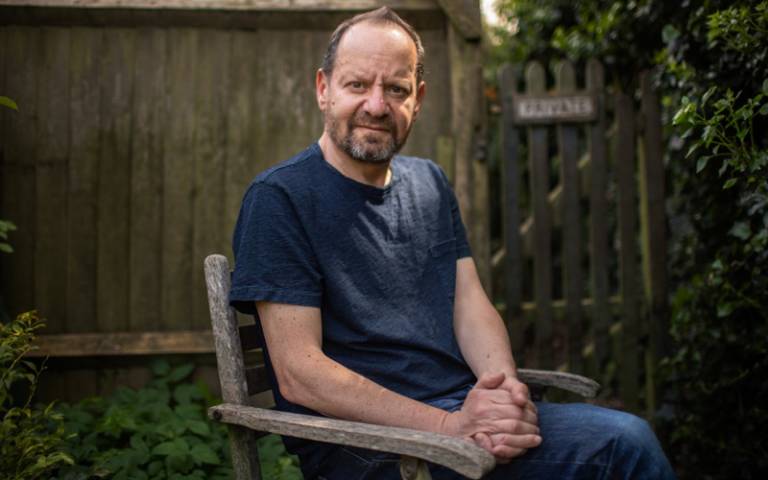Opinion: Genocide or not, the Uighurs need urgent international support
27 July 2020
In an op-ed, Professor Philippe Sands (UCL Laws) explains why the focus on the word 'genocide' skews our responses to other acts of mass atrocity.

In recent days the horrendous treatment of the Uighur community by the Chinese government has received the attention it requires. Some assert that a genocide is being perpetuated by China, by reported sterilisations, displacements, mass incarcerations and other inhumanities. A complaint of genocide, as well as crimes against humanity, has been lodged with the International Criminal Court but the former is always difficult to prove.
The word “genocide” attracts attention like no other. The desire to destroy a group in whole, or in part, is unique in opening up the imagination, the pinnacle of criminal horrors. Other terms, including “crimes against humanity”, which focuses on the protection of individuals, do not carry the same dread resonance. The focus on the “G” word is regrettable. It skews our responses to other acts of mass atrocity, leaving the misleading impression that other crimes against humanity are somehow less terrible. How did this happen?
Raphael Lemkin, a remarkable Polish jurist, coined the term “genocide” 75 years ago. He amalgamated the Greek word genos (tribe or race) and the Latin word cide (killing), to create an obligation to protect groups. His focus was on Jews, Poles and Roma and he hoped to introduce the word into the charter of the Nuremberg tribunal, alongside “crimes against humanity”, but failed.
He did get it into the indictment of the individual defendants, as a war crime, and persuaded three of the four Allied prosecution teams to argue that the Nazis committed genocide. But the US resisted and the famous judgment does not mention the word. Lemkin did not give up. Through the UN, he persuaded the world to negotiate a convention on the prevention and punishment of genocide, adopted in 1948 as the world’s first modern human rights treaty.
After the atrocities of Bosnia and Rwanda, the term gained a new lease of life in the mid-1990s. Two new tribunals were created by the UN Security Council, and the ICC came into being. Prosecutors at these and other courts came to understand that victims wanted their crimes labelled as genocide. Anything less was seen as insufficiently grave.
Over time, a hierarchy has emerged with curious consequences. In the UK, the Holocaust Day Memorial Trust encourages remembrance of the Holocaust and other genocides, but only those that have been recognised by international courts. Thus Cambodia, Rwanda, Bosnia and Darfur are remembered, but other victims of mass violence are not. Why recall the murder of 8,000 Bosnian Muslims at Srebrenica, but pass over in silence the 3m dead in the Democratic Republic of Congo.
Lemkin’s brilliant and necessary invention was motivated by his perception that people are often targeted or killed because of who they are, not what they have done. Yet the 1948 convention protects only groups defined by nationality, ethnicity, race or religion, not those bonded by political affiliation or sexual orientation, for example.
When Hersch Lauterpacht came up with the concept of “crimes against humanity” as an international crime, his aim was to give people rights as individual human beings, not as members of a group. Lemkin’s response: you protect humans by safeguarding their groups. Lauterpacht worried that the emphasis on the group would replace the tyranny of the state with the tyranny of the group. I fear he may have been right. Genocide reinforces the sense of group identity, with psychological and other consequences, elevating group kinship and, perhaps, exacerbating the sense — and hatred — of the “other”.
I have seen this for myself in cases in which I have been involved, for example in the former Yugoslavia. And I am not alone in worrying that the criminalisation of genocidal acts — necessary as it is — may foment more group hatred.
Still, Lemkin’s word is here to stay. So what is to be done? His original conception set a lower bar on the meaning of genocide than the 1948 convention adopts, so more acts could be legally included. One option would be to revert to that approach — genocide is not a numbers game, and the kind of forced sterilisations now being alleged in Xinjiang should be recognised as genocidal acts. Another might be for states to expeditiously adopt the draft convention on crimes against humanity that has been prepared by the UN’s International Law Commission.
Whichever path is chosen, we must not fetishise the names we give to acts of horror. The treatment of the Uighurs, or the Yazidis, or the Rohingya, or myriad other groups and individuals, is wrong and criminal, whatever it is called. For the sake of Uighurs, who need our active and urgent support, let us focus on the substance, not the label.
This article was first published in the Financial Times on 27 July.
Links
Image
‘Professor Phillipe Sands’ Credit: Antonio Olmo
 Close
Close

